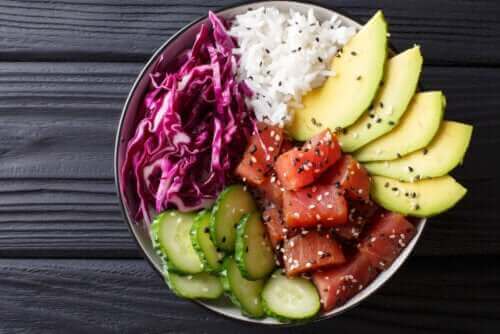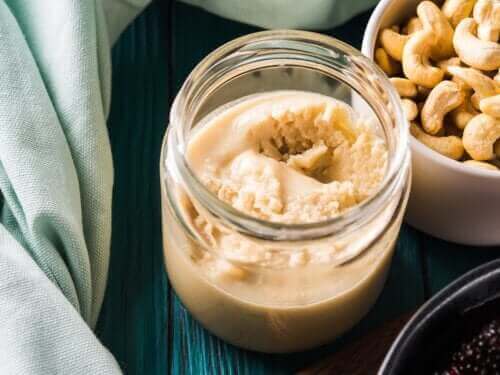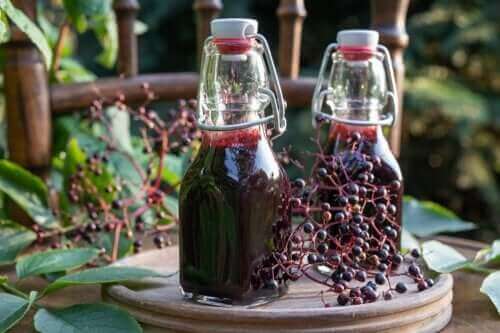用這些自然療法治療泌尿道感染
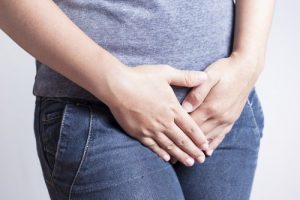
泌尿道感染是一個非常不舒服的問題。
對於那些經常患這種疾病的患者,我們想介紹一系列自然療法來幫助有效治療這些感染。
然而,重要的是要記住,這些療法只能用於輕微的病情。如果有更嚴重的病況,建議就醫接受治療。
一般來說,女性因為尿道較短,較容易發生泌尿道感染。
泌尿道感染的症狀包括:
- 排尿時有灼熱感
- 頻尿
- 尿液顏色暗淡
膀胱飽滿的感覺,即使沒有滿
以下介紹一些自然療法。
1. 小蘇打
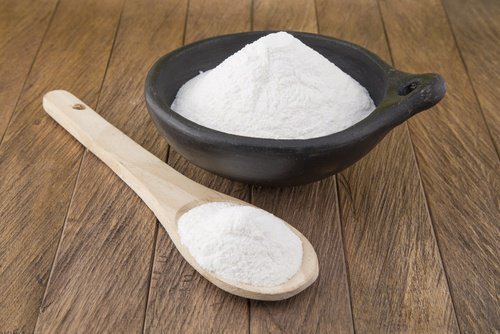
小蘇打對於緩解可能的泌尿道感染非常有幫助。
當你經歷感染的最初症狀時,不要猶豫,在喝兩杯水之後使用此療法。
成分
- 3/4杯水(130毫升)
- 1/4茶匙小蘇打(1克)
使用方法
- 正如我們前面提到的,你應該先喝2杯白開水。
- 直接將小蘇打溶解於3/4杯水中,並飲用。
2. 橄欖葉和薑黃
如果你把橄欖葉萃取物(橄欖苦苷)和薑黃混合,你得到一種治療泌尿道感染的有效自然療法。
成分
- 180毫克橄欖苦苷
- 1茶匙薑黃粉(5克)
成分(2至12歲兒童)
- 40毫克橄欖苦苷
- 半茶匙薑黃粉(2克)
使用方法
- 對於成人和兒童,你需要將橄欖苦苷分為三天份量,共7天。
- 薑黃的份量應每天服用一次。
注:2歲以下兒童不宜使用。
3. 蔓越莓汁
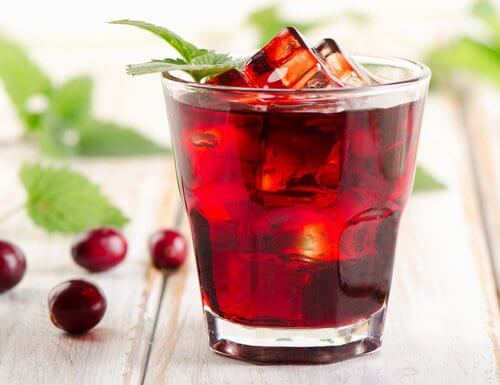
蔓越莓汁是用來停止泌尿道感染的另一種選擇。
醫學已經證明,喝蔓越莓汁可以防止細菌粘附在尿道壁上,使得細菌更容易隨著尿液排出體外。
4. 椰子水和椰子油
椰子水和椰子油在對抗可能的尿道感染時非常有幫助。
- 椰子油是一種强大的抗菌劑,即使大腸桿菌對抗生素產生抗藥性,椰子油也能殺死大腸桿菌。
- 另一方面,椰子水能有效去除腎臟中的雜質。
使用方法
- 使用這種療法來消除泌尿道感染的最好方式,是在一天中攝取兩湯匙未精製的初榨椰子油。
- 為了補充椰子油的作用,你應該在早晨空腹時及晚上睡前喝一杯椰子水。
5. 蘆筍
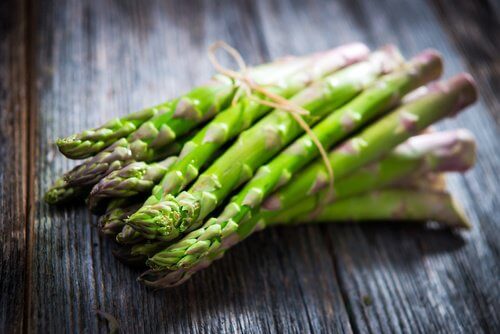
蘆筍是一種强效利尿劑,因為能幫助治療尿道感染,常被用於尿道淨化之用。
然而,重要的是要記住,如果你某天吃了蘆筍,蘆筍會改變尿液的味道。
6. 蘋果醋
蘋果醋是治療這種疾病的另一種神奇方法。
成分
- 2杯水(500毫升)
- 2湯匙蘋果醋(20毫升)
使用方法
- 將兩湯匙的醋加入半公升水中稀釋。
- 在一整天喝這種溶液,以獲得顯著的改善。
7. 西瓜
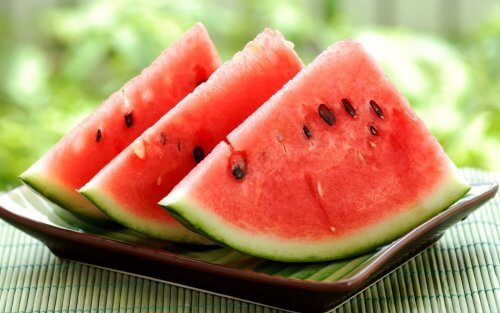
西瓜是一種特別多用途的水果,具有清潔腎臟的功效,可以幫助緩解尿道疾病。
然而,如果疾病已經發展,就無法消除感染。
對膀胱炎的患者來說,西瓜是一種預防感染的好方法。
8. 芹菜汁
一杯添加芹菜的果昔可以幫助你對抗尿道感染。
成分
- 3公升水
- 2條芹菜,包括芹菜葉
- 2片鳳梨
- 1杯洋甘菊茶(250毫升)
使用方法
- 將所有成分加入果汁機攪拌,直到形成一致的混合物。
- 在一天中飲用。
泌尿道感染是一個非常不舒服的問題。
對於那些經常患這種疾病的患者,我們想介紹一系列自然療法來幫助有效治療這些感染。
然而,重要的是要記住,這些療法只能用於輕微的病情。如果有更嚴重的病況,建議就醫接受治療。
一般來說,女性因為尿道較短,較容易發生泌尿道感染。
泌尿道感染的症狀包括:
- 排尿時有灼熱感
- 頻尿
- 尿液顏色暗淡
膀胱飽滿的感覺,即使沒有滿
以下介紹一些自然療法。
1. 小蘇打

小蘇打對於緩解可能的泌尿道感染非常有幫助。
當你經歷感染的最初症狀時,不要猶豫,在喝兩杯水之後使用此療法。
成分
- 3/4杯水(130毫升)
- 1/4茶匙小蘇打(1克)
使用方法
- 正如我們前面提到的,你應該先喝2杯白開水。
- 直接將小蘇打溶解於3/4杯水中,並飲用。
2. 橄欖葉和薑黃
如果你把橄欖葉萃取物(橄欖苦苷)和薑黃混合,你得到一種治療泌尿道感染的有效自然療法。
成分
- 180毫克橄欖苦苷
- 1茶匙薑黃粉(5克)
成分(2至12歲兒童)
- 40毫克橄欖苦苷
- 半茶匙薑黃粉(2克)
使用方法
- 對於成人和兒童,你需要將橄欖苦苷分為三天份量,共7天。
- 薑黃的份量應每天服用一次。
注:2歲以下兒童不宜使用。
3. 蔓越莓汁

蔓越莓汁是用來停止泌尿道感染的另一種選擇。
醫學已經證明,喝蔓越莓汁可以防止細菌粘附在尿道壁上,使得細菌更容易隨著尿液排出體外。
4. 椰子水和椰子油
椰子水和椰子油在對抗可能的尿道感染時非常有幫助。
- 椰子油是一種强大的抗菌劑,即使大腸桿菌對抗生素產生抗藥性,椰子油也能殺死大腸桿菌。
- 另一方面,椰子水能有效去除腎臟中的雜質。
使用方法
- 使用這種療法來消除泌尿道感染的最好方式,是在一天中攝取兩湯匙未精製的初榨椰子油。
- 為了補充椰子油的作用,你應該在早晨空腹時及晚上睡前喝一杯椰子水。
5. 蘆筍

蘆筍是一種强效利尿劑,因為能幫助治療尿道感染,常被用於尿道淨化之用。
然而,重要的是要記住,如果你某天吃了蘆筍,蘆筍會改變尿液的味道。
6. 蘋果醋
蘋果醋是治療這種疾病的另一種神奇方法。
成分
- 2杯水(500毫升)
- 2湯匙蘋果醋(20毫升)
使用方法
- 將兩湯匙的醋加入半公升水中稀釋。
- 在一整天喝這種溶液,以獲得顯著的改善。
7. 西瓜

西瓜是一種特別多用途的水果,具有清潔腎臟的功效,可以幫助緩解尿道疾病。
然而,如果疾病已經發展,就無法消除感染。
對膀胱炎的患者來說,西瓜是一種預防感染的好方法。
8. 芹菜汁
一杯添加芹菜的果昔可以幫助你對抗尿道感染。
成分
- 3公升水
- 2條芹菜,包括芹菜葉
- 2片鳳梨
- 1杯洋甘菊茶(250毫升)
使用方法
- 將所有成分加入果汁機攪拌,直到形成一致的混合物。
- 在一天中飲用。
- Ahmed, J., Abdu, A., Mitiku, H., Ataro, Z. (2023). In vitro Antibacterial Activities of Selected Medicinal Plants Used by Traditional Healers for Treating Urinary Tract Infection in Haramaya District, Eastern Ethiopia. Infection and Drug Resistance, 16, 1327-1338. https://www.tandfonline.com/doi/full/10.2147/IDR.S398204
- Alka, G., Anamika, S., Ranu, P. (2018). A review on watermelon (Citrullus lanatus) medicinal seeds. Journal of Pharmacognosy and Phytochemistry, 7(3), 2222-2225. https://www.phytojournal.com/archives/2018.v7.i3.4520/a-review-on-watermelon-ltemgtcitrullus-lanatusltemgt-medicinal-seeds
- Ansari, B., Küpeli Akkol, E., Khan, H., Shah, M. A. (2021). Olive Leaf (Oleuropein) and Its Role in Cancer: Therapeutic Updates. Nutraceuticals and Cancer Signaling, 367–400. https://link.springer.com/chapter/10.1007/978-3-030-74035-1_14
- Chang, Z., An, L., He, Z., Zhang, Y., Li, S., Lei, M., Xu, P., Lai, Y., Jiang, Z., Huang, Y., Duan, X., Wu, W. (2022). Allicin suppressed Escherichia coli-induced urinary tract infections by a novel MALT1/NF-κB pathway. Food & Function, 13(6), 3495-3511. https://pubs.rsc.org/en/content/articlelanding/2022/fo/d1fo03853b/unauth
- Dhanya, R. CT, Vivekanandan, P., Rathinam, A. J. (2023). Anti-uropathogenic, antioxidant and struvite crystallization inhibitory potential of fresh and fermented coconut water. Biocatalysis and Agricultural Biotechnology, 47, 102555. https://www.sciencedirect.com/science/article/abs/pii/S1878818122002821
- Ebani, V.V., Nardoni, S., Bertelloni, F., Pistelli, L., Mancianti, F. (2018). Antimicrobial Activity of Five Essential Oils against Bacteria and Fungi Responsible for Urinary Tract Infections. Molecules, 23(7), 1668. https://www.mdpi.com/1420-3049/23/7/1668
- Eedee, K. F., Martha, E., Giami, L., Patience Nkiru, D., Konne, O. E., Roseanne Adah, O., Godwin Nwokah, E., Kinikanwo, W. C. (2022). Antimicrobial Activities of Ethanol Extract of Banana (Musa sapientum L.) Peels against Organisms Associated with Urinary Tract Infection. Asian Journal of Research in Infectious Diseases, 9(1), 1–7. https://journalajrid.com/index.php/AJRID/article/view/153
- Flores-Mireles, A., Walker, J., Caparon, M., Hultgren, S.J. (2015). Urinary tract infections: epidemiology, mechanisms of infection and treatment options. Nature Reviews Microbiology, 13, 269–284. https://www.nature.com/articles/nrmicro3432
- González de Llano, D., Moreno-Arribas, M. V., Bartolomé, B. (2020). Cranberry Polyphenols and Prevention against Urinary Tract Infections: Relevant Considerations. Molecules, 25(15), 3523. https://www.mdpi.com/1420-3049/25/15/3523
- Grin, P.M., Kowalewska, P.M., Alhazzan, W., Fox-Robichaud, A.E. (2013). Lactobacillus for preventing recurrent urinary tract infections in women: meta-analysis. The Canadian Journal of Urology, 20(1), 6607-14. https://pubmed.ncbi.nlm.nih.gov/23433130/
- Loose, M., Pilger, E., Wagenlehner, F. (2020). Anti-Bacterial Effects of Essential Oils against Uropathogenic Bacteria. Antibiotics (Basel), 9(6), 358. https://pubmed.ncbi.nlm.nih.gov/32630444/
- Luanda, A., Ripanda, A., Makangara, J.J. (2023). Therapeutic potential of Equisetum arvense L. for management of medical conditions. Phytomedicine Plus, 3(2), 100444. https://www.sciencedirect.com/science/article/pii/S2667031323000404
- Packiavathy, I. A., Priya, S., Pandian, S. K., Ravi, A. V. (2014). Inhibition of biofilm development of uropathogens by curcumin – an anti-quorum sensing agent from Curcuma longa. Food Chemestry, 148, 453-460. https://www.sciencedirect.com/science/article/abs/pii/S0308814612012411
- Pegiou, E., Mumm, R., Acharya, P., de Vos, R.C.H., Hall, R.D. (2020). Green and White Asparagus (Asparagus officinalis): A Source of Developmental, Chemical and Urinary Intrigue. Metabolites, 10(1), 17. https://www.mdpi.com/2218-1989/10/1/17
- Samuel, A. J. S. J., Vimala, A. G. K. A., Dakshanamurthy, D. (2021). Antibacterial Activity of Ananas comosus Fruit Extract against Clinically Isolated Bacteria from Urinary Tract Infected Patients. Journal of Pharmaceutical Research International, 33(24B), 61–70. https://journaljpri.com/index.php/JPRI/article/view/2265
- Sarshar, S., Sendker, J., Qin, X., Goycoolea, F.M., Asadi Karam, M.R., Habibi, M., Bouzari, S., Dobrindt, U., Hensel, A. (2018). Antiadhesive hydroalcoholic extract from Apium graveolens fruits prevents bladder and kidney infection against uropathogenic E. coli. Fitoterapia, 127, 237-244. https://www.sciencedirect.com/science/article/abs/pii/S0367326X18300364
- Yagnik, D., Ward, M. & Shah, A.J. (2021). Antibacterial apple cider vinegar eradicates methicillin resistant Staphylococcus aureus and resistant Escherichia coli. Scientific Reports, 11, 1854. https://www.nature.com/articles/s41598-020-78407-x
此文本僅供資訊目的使用,並不取代與專業人士的諮詢。如有疑問,請諮詢您的專家。
